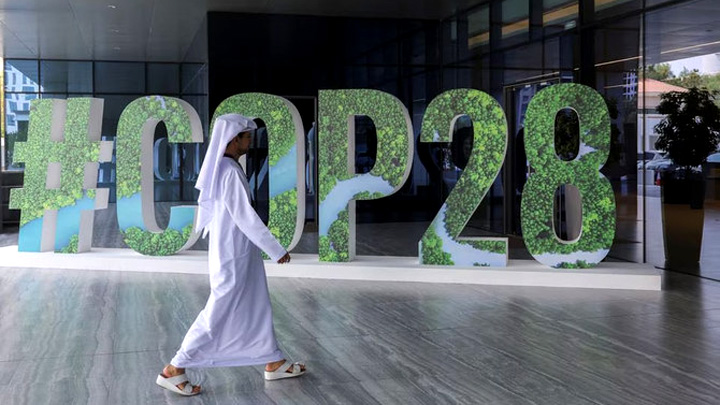EU to push for COP28 deal on phasing out fossil fuels
EU countries’ climate ministers on Monday approved the bloc’s negotiating position for this year’s U.N. COP28 climate summit, agreeing to push for a world-first deal to phase out CO2-emitting fossil fuels.
The agreement sets up the 27-country European Union to be one of the most ambitious negotiators at the annual United Nations climate talks, where nearly 200 countries negotiate efforts to fight global warming.
“We will be at the forefront of the negotiations to show the EU’s strongest commitment to the green transition and encourage our partners to follow our lead,” Spain’s Climate Minister Teresa Ribera said.
A central decision will be whether countries at the COP, which begins on Nov. 30 in Dubai, agree for the first time to phase out fossil fuels. Burning coal, oil and gas produces greenhouse gases that are the main cause of climate change.
The EU’s 27 member countries agreed unanimously to call at COP28 for a phase-out of “unabated” fossil fuels. That leaves a window for countries to keep burning coal, gas and oil if they use technology to “abate” – meaning capture – the resulting emissions.
However, the EU deal noted that emissions capturing technologies “exist at limited scale and are to be used to reduce emissions mainly from hard to abate sectors”.
The use of these technologies “should not be used to delay climate action”, said the deal, seen by Reuters.
Denmark’s global climate minister, Dan Jorgensen, said the negotiating position was “extremely ambitious”.
“I would have liked it to be even more ambitious, but okay, we are a union for almost 30 countries, and we need to agree,” he told Reuters.
Around 10 countries including Denmark, France, Germany, Ireland, the Netherlands and Slovenia had wanted a stronger deal to phase out all fossil fuels.
However, a similar number of countries – including Bulgaria, Hungary, Italy, Malta and Poland – successfully argued for the caveat on abatement technologies.
Bulgaria’s Environment Minister Julian Popov told Reuters the aim was to keep open this option for polluting sectors with limited technologies to cut emissions – such as chemicals and cement manufacturing – but not for the energy sector, where the shift to low-carbon sources like wind and solar is already underway.
“It’s a very expensive technology, it’s not sufficiently developed. So if we have to invest and focus in (carbon capture technology), we have to find the right sector for it,” he said.
The EU split reflects simmering global tensions. EU countries opposing a full phase-out include poorer nations who fear the impact of weaning their economies off fossil fuels.
Fossil fuel producers and consumers – some of whom, like Saudi Arabia, have blocked attempts to agree a phase-out in meetings including this year’s G20 summit – are expected to offer similar resistance at the COP28 summit.
EU countries also called for “inefficient” fossil fuel subsidies to be phased out by 2030, and said there could be no new coal-fuelled power plants if the world is to avert severe climate change.

